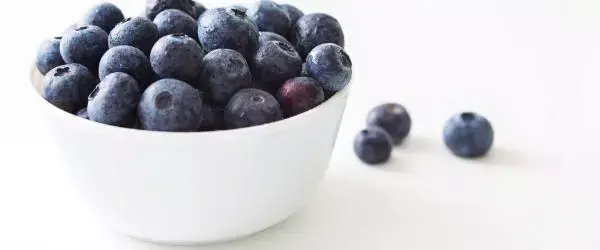- Home
- Medical news & Guidelines
- Anesthesiology
- Cardiology and CTVS
- Critical Care
- Dentistry
- Dermatology
- Diabetes and Endocrinology
- ENT
- Gastroenterology
- Medicine
- Nephrology
- Neurology
- Obstretics-Gynaecology
- Oncology
- Ophthalmology
- Orthopaedics
- Pediatrics-Neonatology
- Psychiatry
- Pulmonology
- Radiology
- Surgery
- Urology
- Laboratory Medicine
- Diet
- Nursing
- Paramedical
- Physiotherapy
- Health news
- Fact Check
- Bone Health Fact Check
- Brain Health Fact Check
- Cancer Related Fact Check
- Child Care Fact Check
- Dental and oral health fact check
- Diabetes and metabolic health fact check
- Diet and Nutrition Fact Check
- Eye and ENT Care Fact Check
- Fitness fact check
- Gut health fact check
- Heart health fact check
- Kidney health fact check
- Medical education fact check
- Men's health fact check
- Respiratory fact check
- Skin and hair care fact check
- Vaccine and Immunization fact check
- Women's health fact check
- AYUSH
- State News
- Andaman and Nicobar Islands
- Andhra Pradesh
- Arunachal Pradesh
- Assam
- Bihar
- Chandigarh
- Chattisgarh
- Dadra and Nagar Haveli
- Daman and Diu
- Delhi
- Goa
- Gujarat
- Haryana
- Himachal Pradesh
- Jammu & Kashmir
- Jharkhand
- Karnataka
- Kerala
- Ladakh
- Lakshadweep
- Madhya Pradesh
- Maharashtra
- Manipur
- Meghalaya
- Mizoram
- Nagaland
- Odisha
- Puducherry
- Punjab
- Rajasthan
- Sikkim
- Tamil Nadu
- Telangana
- Tripura
- Uttar Pradesh
- Uttrakhand
- West Bengal
- Medical Education
- Industry
Blueberries consumption may improve mass and function of skeletal muscles: Study

IMAGE: A NEW STUDY INVESTIGATED HOW SERUM FROM SUBJECTS CONSUMING A DIET ENRICHED WITH BLUEBERRIES WOULD AFFECT THE CELLS RESPONSIBLE FOR MUSCLE GROWTH AND REPAIR. view more
CREDIT: U.S. HIGHBUSH BLUEBERRY COUNCIL
FOLSOM, Calif. - Researchers at Cornell University have found in a new study that a diet rich in blueberries may improve potential for preservation and recovery of skeletal muscle mass.
The new study investigated how serum from subjects consuming a diet enriched with blueberries would affect the cells responsible for muscle growth and repair. The emerging study, "Consumption of a blueberry enriched diet by women for six weeks alters determinants of human muscle progenitor cell function," has been published in the Journal of Nutrition.
Skeletal muscle progenitor cells (SMPCs), also called myogenic progenitors, have been studied extensively in recent years because of their promising therapeutic potential to preserve and recover skeletal muscle mass and function in patients with cachexia, sarcopenia, and neuromuscular diseases.
The study was conducted over six weeks with 22 women, 12 aged 25-40 and 10 aged 60-75. For the blueberry-enriched diet, participants consumed the equivalent of 1.75 cups of fresh blueberries/day, given as freeze-dried blueberries (19 g in the morning and 19 g in the evening), along with their regular diet. Participants were also asked to avoid other foods rich in polyphenols and anthocyanins. Serum was obtained from the participants 1.5 hours after consuming the morning dose of blueberries. The researchers then investigated how the serum would affect muscle progenitor cell function through proliferation or cell number, capacity to manage oxidative stress and oxygen consumption rate or metabolism.
The results showed the six-week blueberry-enriched serum obtained from the women aged 25-40 increased human muscle progenitor cell numbers in culture. There was also a trend toward a lower percentage of dead human muscle progenitor cells, suggesting a resistance to oxidative stress, as well as increased oxygen consumption of the cells. There were no beneficial effects seen in the muscle progenitor cells treated with serum from participants aged 60-75 who consumed the blueberry enriched diet.
"The consequences associated with the deterioration of skeletal muscle are a loss of mobility, decreased quality of life, and ultimately, loss of independence. Currently, research on dietary interventions to support skeletal muscle regeneration in humans is limited. This preliminary study of muscle progenitor cell function paves the way for future studies to develop clinical interventions," said Anna Thalacker-Mercer, Ph.D., the study's lead investigator. "While the results cannot be generalized to all populations, this study is an important step in translating findings from cell culture and rodent studies to a potential dietary therapy for improving muscle regeneration after injury and during the aging process."
According to the Centers for Disease Control and Prevention (CDC), muscles lose strength, flexibility, and endurance over time. Muscle mass decreases three to five percent every decade after 30 years of age, and that rate increases over age 60. Therefore, strategies to improve muscle progenitor cell proliferation and lower oxidative stress may also benefit muscle regeneration during the aging process.
Research on the role that blueberries may play in promoting good health is ongoing across multiple areas, including cardiovascular health, diabetes management, brain health, exercise and the gut microbiome.p
For further reference log on to:
Dr Kamal Kant Kohli-MBBS, DTCD- a chest specialist with more than 30 years of practice and a flair for writing clinical articles, Dr Kamal Kant Kohli joined Medical Dialogues as a Chief Editor of Medical News. Besides writing articles, as an editor, he proofreads and verifies all the medical content published on Medical Dialogues including those coming from journals, studies,medical conferences,guidelines etc. Email: drkohli@medicaldialogues.in. Contact no. 011-43720751


